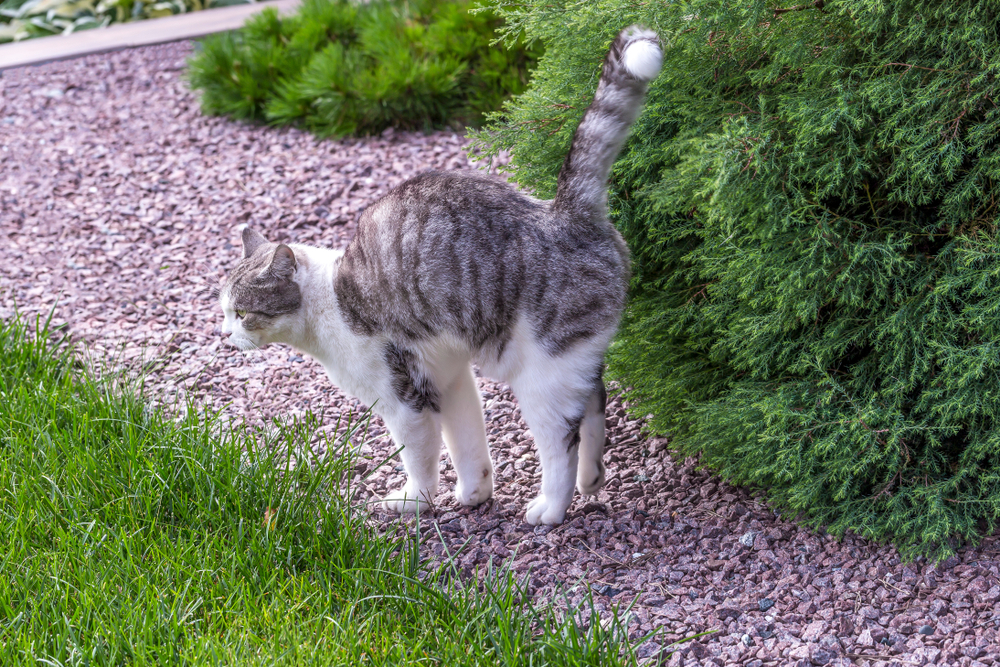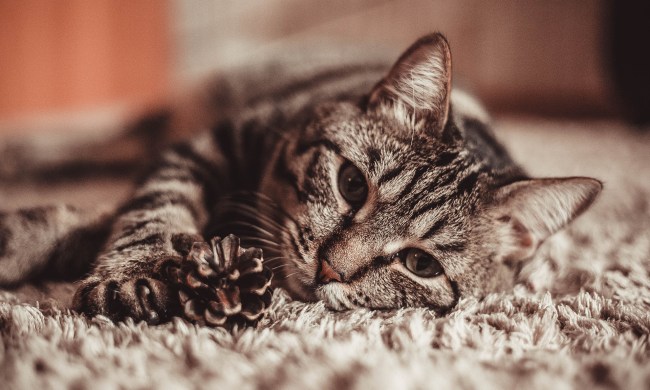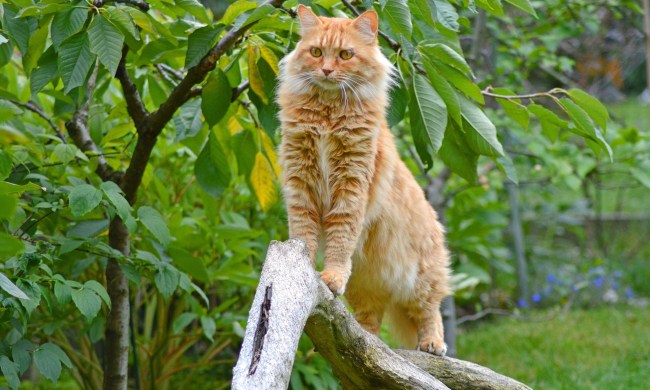We love everything about cats — their adorable faces, their playful antics, and their "if I fits, I sits" can-do attitude. Well, make that almost everything. One thing we don’t love? The spraying. There's nothing worse than returning home from a hard day’s work to the overwhelming odor of cat urine and unsightly splashes on our furniture, our floors, our walls, and sometimes even our doors. You’re not alone if you’ve been wondering, “Why is my female cat spraying all of a sudden?”
We’ve consulted the experts, and we’re here to help unravel the mystery behind this gross behavior. Have you been asking yourself, "When do male cats start spraying?" We’re here with the answers. Most importantly, we’ll share our six favorite tips to keep your cat from making a stinky mess of your home.

Is your cat really spraying?
Unless you catch them in the act, you may not be able to tell if your cat is urinating or spraying, but there are a few tells to look out for. When cats urinate, they typically squat down on a flat surface. There’s normally quite a lot of urine present when this happens.
On the contrary, when cats spray, they tend to stand upright, lift their tails, and hit a vertical surface, like the bottom of your sofa or a wall. There’s typically less urine present, too. If your cat is urinating outside their litter box, give it a thorough clean. Cats are extremely finicky, and they may let you know their box is dirty by intentionally peeing where you can see it.
If your cat continues to urinate outside their box, try changing the litter, relocating the litter box — you should never place litter boxes near food and water bowls — and taking them to the vet if the behavior continues.
Once you’ve determined that your cat is really spraying in the house, you can attempt to curb the behavior with the following tips.

How to stop a cat from spraying
Step 1: Evaluate your living situation.
Marking their territory may be the most common reason cats spray, but it’s certainly not the only one. Just like humans, cats can suffer from anxiety, and any number of things can make a cat stressed. Moving to a new place or changing the layout of your current home may cause anxiety — and spraying.
Step 2: Spay or neuter your cat.
Cats often spray to mark their territory, especially male cats. (Yes, female cats can spray. It’s less common than with male cats, but it does happen.) According to the professionals at Manhattan Cat Specialists, only 10% of males and 5% of females will continue spraying after they’ve been spayed or neutered.
Step 3: Use calming products.
Whether you prefer scented sprays, collars, pheromone diffusers, or edible supplements, these products can help reduce your cat’s stress. If you choose diffusers and have more than one cat, you can even find formulas that provide enough coverage for multiple kitties, saving you a few bucks in the long run.
Step 4: Clean affected areas thoroughly.
Once your cat sprays a certain spot, they leave behind a scent that keeps them coming back to the same area. Instead of scrubbing away with soap and water, try an enzymatic cleanser that’s specifically designed to target and eliminate pet odors.
Step 5: Try adding another litter box.
Even if you keep your cat’s litter box clean, that might not be enough to make your finicky feline happy. Adding another litter box to your home may be the perfect solution to the problem, especially if you have more than one pet in the house.
Step 6: Talk to your veterinarian.
If all else fails, it’s time to consult your kitty's doctor. Your vet can run tests to determine whether a physical problem is behind his sudden tendency to spray. You might consider consulting a cat behavioral specialist for more suggestions on on curbing unwanted behaviors like spraying.
Dealing with spraying in the house can be stressful, but there are ways to combat this obnoxious behavior. Just remember that contrary to popular belief, your cat isn’t spraying to spite you. In all likelihood, your fur baby is marking their territory, expressing their anxiety, or trying to draw your attention to a medical problem. When in doubt, contact your veterinarian for advice. Once you’ve eliminated the problem, you’ll be able to enjoy your cat’s company — minus any lingering odors.




